As Director of Rail at Transport for West Midlands, Mal Drury-Rose is set to play a crucial role as the region targets more control over local rail services.
In this article:
As Director of Rail at Transport for West Midlands, Mal Drury-Rose is set to play a crucial role as the region targets more control over local rail services.
In this article:
- Labour’s election victory could expand regional control over rail services, aligning with local growth and investment priorities.
- Mal Drury-Rose’s experience positions him to guide rail devolution and navigate challenges in funding and reliability.
- Streamlining operations under Great British Railways aims to improve efficiency, integration, and passenger satisfaction nationwide.
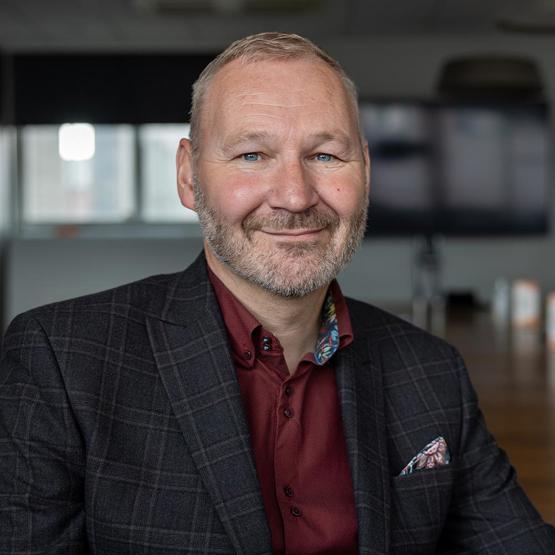
Labour’s General Election victory looks set to bring not only the return of a publicly-run railway network, through Great British Railways, but also opportunities for passenger transport bodies across England to have a greater say in how services are run in their areas.
As Director of Rail at Transport for West Midlands (TfWM), and Executive Director of the West Midlands Rail Executive (WMRE), Mal Drury-Rose is well placed to oversee those changes.
Before coming to the West Midlands in June last year, Mal Drury-Rose had held senior roles at Virgin Trains, First Great Western and National Express.
But his most recent jobs as Head of Rail at the Welsh Government and Assistant Director of Rail at the Liverpool City Region Combined Authority will certainly prove useful if (as expected) the new Labour government opts to give bodies such as TfWM and the Rail Executive more power under a devolved rail landscape.
Drury-Rose maintains that a lot of devolution has already taken place, with Network Rail having broken up its operation into regions and routes. He believes that may be the basis for Great British Railways regions, once it’s formally in place as the new guardian of the railways.
“For me, devolution of the railways is broader than that,” he says.
“It’s about having that integration of transport modes where you do have that control.
“It’s about building on the priorities of local authority partners who can optimise investment, linking to their place-based strategies for growth - including housing, social inclusion, education, and opportunity. Bringing that all together is far better at a local level.”
Ultimately, he feels that local areas have the local intelligence and knowledge to do that.
“One of the main challenges of devolution is being realistic about responsibilities and accountabilities.
“I think there is always going to be a trade-off about where you can invest. No one has a money tree, so you have to say: what is the right outcome you are trying to achieve?
“And it may not be rail. It might be bus. It might be another active mode of transport. But transport is an enabler to all those things. I think that’s a real key for devolution.”
And if anyone can manage the change that’s coming, and the new devolved powers, it’s Mal Drury-Rose.
He started life on the railways at the tender age of 17, as a guard on what was then Network SouthEast. He remembers it as the days of “Chris Green and the red lamp-posts”.
Although a guard for several years, he had aspirations to become a train driver. Instead, he worked his way up and became a train crew supervisor, managing drivers and guards, and a mobile operations manager out on the track, dealing with incidents.
He later became one of the youngest senior station supervisors at Waterloo station in London.
“I was pretty much known as a Jonah, because when I was on-shift, there was always some crisis going on at Waterloo. And that’s not the sort of station where you want a big problem with the train service. That was really good fun.”
His next move was to Swindon, as an operations controller under InterCity Great Western and then Regional Railways.
Then came rail privatisation. Drury-Rose returned to train crew management, working his way up to become Operations Director at Wessex Trains.
There, through intensive work with the unions, he pioneered productivity changes which saw an end to the practice of volunteer Sunday working, where drivers could easily ‘opt out’ of working on Sundays.
“Twenty years ago, I got rostered Sundays committed by Wessex Trains drivers as part of driver restructuring. That’s why I find it slightly odd, in 2024, that we still haven’t achieved it in some train companies.”
He acknowledges that he had a good relationship with the unions: “It was easier in those days for productivity, to buy out some of that. A quid pro quo arrangement. It was about getting what we could achieve under a financial case, like a commitment to Sunday working and changes to some working practices. You can succeed with the right approach.”
His next role, as Regional Director South for Virgin Trains under his long-term mentor Charles Belcher, gave him his first experience of the West Midlands. There, he managed routes out of Euston to Wolverhampton.
“I actually loved that job for a few years, but restructuring happened and I lost my role. I picked myself up and got a job at Great Western, where I worked for Andrew Haines - an inspirational leader.”
After that he headed further west to lead the Welsh government’s rail team. He went there for what he thought would be a year, but ended up staying there for over a decade.
Drury-Rose recalls: “I was responsible for managing rail from the client side, so responsible for the Arriva Trains Wales contract and for the Welsh government’s rail programme.”
Not an easy task, considering the bad press that rail services received under privatisation, when the franchise contract was awarded on a ‘no growth basis’.
At the time, the Welsh government was keen to invest in infrastructure and to take more control. Drury-Rose became one of the first Directors at Transport for Wales, eventually helping to set the devolution deals that moved the operation and control of the trains away from Westminster.
“With other colleagues in the Welsh government, we got powers transferred. That was really intensive work,” he recalls.
Drury-Rose then decided that he would become self-employed. His many years of operational experience and solving problems would make him an ideal candidate for various consultancy roles.
But this was late 2019. Three months later, the world was engulfed in the COVID crisis and the lockdowns that followed. The railways lost virtually all of its passengers overnight, and there wasn’t much need for consultants.
“I think that sometimes being your own boss might be a good thing to do, so I thought: ‘well, my bread and butter is rail.’
“Then the Liverpool role came up, and I thought: ‘OK, I'll give that a go.’ It sounded quite exciting, and it built on my experience in Wales.”
But his time in Merseyside was relatively short. Within two years Malcolm Holmes, the former Director of Rail at TfWM, announced that he was leaving to become General Director of the Great Central Railway.
Drury-Rose says: “It was quite an intensive recruitment process, including having a ‘chat’ with the then-West Midlands Mayor Andy Street.”
But with 30-plus years under his belt on the railways, and with bags of experience of rail operations (including under devolution), he was seen as a compelling appointment.
Sixteen months into the job, and with a change of mayor and government, plus a £22 billion black hole in public finances, it’s clearly going to be hard for places such as the West Midlands that have big ambitions for its rail network.
Drury-Rose says: “Obviously, we talk to our colleagues at the Department for Transport, and it clear that there are going to be some challenges ahead.
“We’re not quite clear exactly what those are yet. But I think what we will do is protect our interests in the region as those challenges come forward. But we also need to be pragmatic about that.”
Drury-Rose maintains that the challenges come broadly in two areas: funding to support services, and infrastructure improvements.
“I think we have to come together and understand what is the best outcome for those services, in terms of where we invest in the infrastructure based on demand.
“We need to be pragmatic and realistic about what are the trade-offs to secure growth, while improving reliability and performance. For me, I think you can run whatever you want to run. But for passengers, I go back 30 years and I can’t remember ever reading or hearing anything other than performance and reliability being up there at the top, as a priority for people using public transport.”
He suggests that new infrastructure was always further down the list on passenger surveys. But there is a need to invest to grow and to improve infrastructure - such as the Midlands Rail Hub project, which Drury-Rose says will be transformational for the region.
“Crucially, for everyone else, it will unlock the bottleneck that is Birmingham New Street and improve reliability and connectivity for east-west and north-south national rail journeys. The investment needs to be considered as not just for the Midlands, but of national importance.”
There are currently more stations under construction in the West Midlands than in any other area of the country. Contractors are working on five new stations - three on Birmingham’s Camp Hill Line and two more in the Black Country.
University station, serving the University of Birmingham and the Queen Elizabeth Hospital, has recently been completed. Its opening was delayed, and other stations seem to be suffering a similar fate.
Recently, new West Midlands Mayor Richard Parker announced an independent review of various transport projects, to ensure that the region is still getting the best value for money.
Drury-Rose admits that the delays are “disappointing”, but adds: “We are absolutely determined that, working with colleagues and partners, we’ll get these stations open next year.
“And clearly, we come into it from supporting the West Midlands Combined Authority and Transport for West Midlands in delivering those station schemes, but also making sure the funding is available for WMT to operate the services.
“There have been challenges, but the independent review will pick that up. And we’ll learn lessons through that review to understand how we can do things differently.”
Despite having worked well with the rail unions in the past, Drury-Rose certainly has his work cut out in the West Midlands.
Like other areas, Sunday rail services are still heavily dependent on volunteers. This summer’s Euro 2024 final, which fell on a Sunday (and involved England), virtually closed down the local rail network after there was a lack of volunteers for overtime when the match was being played.
It’s a good example of where there’s still need for reform, to enable those planning rail services to plan with confidence that services will run.
Drury-Rose says: “There are so many different operators, with different terms and conditions, that impacts services - particularly at weekends and during peak holiday periods.
“We have to find a way that brings stability and service reliability all the time. Passengers expect no less.
“One of the best ways is to find a way through reform or, more accurately, productivity improvements. Reform sounds like a really strong word, but it’s basically talking to the unions about the things they’re willing to talk about, to understand what works for passengers and bring it back to that.
“We need everyone to work together to make progress, I think that’s in everyone’s interest, including the future of the industry.”
On the thorny subject of Sunday working, it’s clear that he wants less dependence on overtime.
“It’s one of the things that is key, because as long as you have that, you’re relying on volunteers. And with respect, such as a Euros football tournament, when England play in the Euros, the volunteers aren’t there. You would still expect your local supermarket to be open, and transport should be no different.
“I just think we need to understand how we get that situation more controlled, so we have more reliability.
“In the longer term, we do have an ambition for more Sunday services. as some parts of the region are also poorly served.”
As well as Sundays, the region has an aspiration to run more frequent services where it can.
For example, Drury-Rose feels that services could better serve the night-time economy, particularly within entertainment hotspots. He feels that anyone coming into the railways needs to be aware that it’s a seven-day-a-week operation.
Looking forward to the new Great British Railways, Drury-Rose is hoping that it will help to make things simpler.
He cites the many operators within the West Midlands region, as well as freight and Network Rail. Aligning the priorities of all the different parties isn’t straightforward.
“My aspiration for GBR is to streamline all that, to make things more efficient. But also, I think, aligning priorities better with the needs of the region.
“For example, longer-term strategies on rail and transport, and GBR understanding and appreciating our requirements and working together on a single version of the truth.
“We already have a strong relationship with the Network Rail Central route team, so the foundations are already in place - we’re all on the same page and singing from the same hymn sheet.
“Jointly making the case to government, this is what we need in the region. I think that’s going to be a real winner.”
Drury-Rose is also looking forward to the day, under GBR and a renationalised railway, when everyone becomes agnostic about who is actually operating the trains.
“In the future, it will be a train, which will be specified for a certain passenger flow, which we will aim to specify locally with GBR. I think that takes it to a different level. GBR will tell us what their capability is and we will say what services we aspire to run. It will be a much more closer-type arrangement.
“Is it like the old days of British Rail? Probably, if I’m being honest. Going back to pre-privatisation, I suppose it is.”
With local devolution now centre of the new government’s priorities, Drury-Rose acknowledges that things sometimes do come full circle. But he maintains it is a great opportunity for the region to be able to work in partnership for a common purpose between different operators.
He’s disappointed that it’s taken so long to get GBR up and running, and talks about a “paralysis” that hasn’t helped the industry at a time when it could focus more on passengers.
“There’s still going to be uncertainty through transition, but I’m quite excited and very upbeat about the future,” he says.
West Midlands Rail Executive, on behalf of its 14 local authorities and the West Midlands Combined Authority and TfWM, is already developing a ‘Vision for Rail’ for its future role in a GBR world, combined with greater local devolution and accountability.
With all to play for in terms of devolution of the Midlands rail network, a key question is: how fast will the changes happen? Where would Mal Drury-Rose like things to be in (say) five years’ time?
He replies: “Maybe it’ll take some time to get exactly what we want, but the number one priority for me is that we have a service that is reliable and modern.”
He believes that in some respects the West Midlands is already on that path, with one of the youngest rolling stock fleets in the country.
The new Class 730 electric multiple units have been introduced by West Midlands Trains on Birmingham’s Cross-City Line, and the new Class 196 diesel multiple units have also been rolled out recently.
Drury-Rose says: “I want people who work in the industry to be proud of it. I want to encourage and support having that positive passion, and for the younger generation to see the industry as a career choice, like I did all those years ago.
“Although it's not necessarily my role, I do engage with people who are there for customers and passengers. And I do intertwine those two words quite a lot, because as a customer, you have a choice - primarily car or public transport.
“So, we need a transport system that’s reliable and accessible, and that passengers can understand and rely on. We also need a rail system that integrates well with other modes.
“Very importantly, the whole experience needs to be seamless. And we need to find ways of getting customer information and handlingit better, particularly when things go wrong.
“That’s a key ambition for me. And more local, democratic, accountability is the way to achieve this.”
Login to continue reading
Or register with RAIL to keep up-to-date with the latest news, insight and opinion.


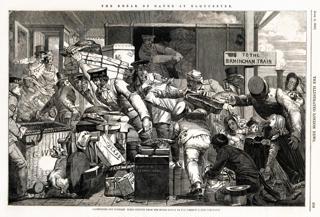
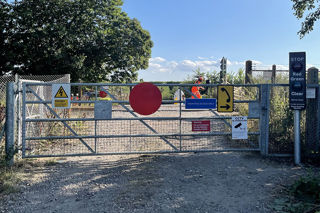
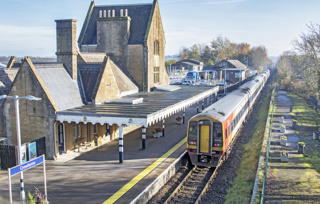
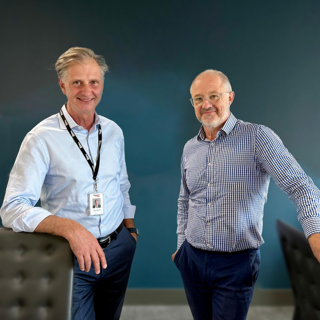











Login to comment
Comments
No comments have been made yet.